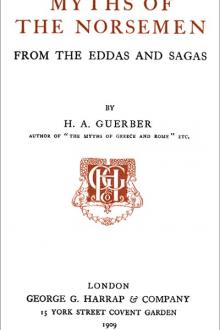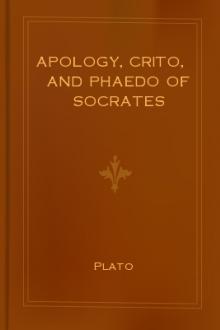Genre Philosophy. Page - 12

Blue Screen of Death" that appears on Windows users' monitors when something goes irretrievably wrong is the butt of many jokes.
Linux users also bragged about the quality of their desktop interface. Most of the uninitiated thought of Linux as a hacker's system built for nerds. Yet recently two very good operating shells called GNOME and KDE had taken hold. Both offered the user an environment that looked just like Windows but was better. Linux hackers started bragging that they were able to equip their girlfriends, mothers, and friends with Linux boxes without grief. Some people with little computer experience were adopting Linux with little trouble.
Building websites and supercomputers is not an easy task, and it is often done in back rooms out of the sight of most people. When people began realizing that the free software hippies had slowly managed to take over a large chunk of the web server and supercomputing world, they realized that perhaps Microsoft's claim was viable. Web servers and su

the sons of men; But of his brain The heavy clouds are All created."
Norse Mythology (R. B. Anderson).
To support the heavenly vault, the gods stationed the strong dwarfs, Nordri, Sudri, Austri, Westri, at its four corners, bidding them sustain it upon their shoulders, and from them the four points of the compass received their present names of North, South, East, and West. To give light to the world thus created, the gods studded the heavenly vault with sparks secured from Muspells-heim, points of light which shone steadily through the gloom like brilliant stars. The most vivid of these sparks, however, were reserved for the manufacture of the sun and moon, which were placed in beautiful golden chariots.
"And from the flaming world, where Muspel reigns, Thou sent'st and fetched'st fire, and madest lights: Sun, moon, and stars, which thou hast hung in heaven, Dividing clear the paths of night and day."
Balder Dead (Matthew Arnold).
When all these preparations had been finis

mind is compelled to believe that theremust have been an Original One, that can have had no cause. This is ahard task for the Intellect, but in time it comes to see just where thetrouble lies, and ceases to interpose objections to the voice of thehigher regions of the self.
And, the Intellect experiences a similar difficulty when it tries tothink of an Eternal--a That which is above and outside of Time. We seeTime in operation everywhere, and take it for granted that Time is areality--an actual thing. But this is a mistake of the senses. There isno such thing as Time, in reality. Time exists solely in our minds. Itis merely a form of perception by which we express our consciousness ofthe Change in Things.
We cannot think of Time except in connection with a succession ofchanges of things in our consciousness--either things of the outerworld, or the passing of thought-things through our mind. A day ismerely the consciousness of the passing of the sun--an hour or minutemerely the subdivision

. The relative value of any given system of religious thought must depend on the amount of truth which it embodies as well as on the ethical standard which its adherents are bidden to follow. Another important test is the degree of originality that is to be assigned to it, for it can manifestly only claim credit for that which is new in it, not for that which it borrowed from other systems.
With regard to the first-named criterion, there is a growing opinion among students of religious history that Muhammed may in a real sense be regarded as a prophet of certain truths, though by no means of truth in the absolute meaning of the term. The shortcomings of the moral teaching contained in the Koran are striking enough if judged from the highest ethical standpoint with which we are acquainted; but a much more favourable view is arrived at if a comparison is made between the ethics of the Koran and the moral tenets of Arabian and other forms of heathenism which it supplanted.
The method followed by Mu

plied incoherently and evasively; it was as if he knew something terrible, something dreadful, but did not wish to speak of it. Eventually he retired to his own apartments, but it was not until several hours had passed that he returned to his normal condition of mind.
The same doctor who had been summoned on the occasion of Wilhelm's former encounter with the White Lady was in attendance on him, and he looked extremely grave when informed that the Emperor had again experienced a mysterious shock. He shut himself up alone with his royal patient, forbidding any one else access to the private apartments. However, in spite of all precautions, the story of what had really occurred in the picture gallery eventually leaked out--it is said through a maid of honour, who heard it from the Empress.
The third appearance of the White Lady of the Hohenzollerns to the Kaiser did not take place at either of the palaces, but strangely enough, in a forest, though exactly where situated has not been satisfactorily

hen? Whence have these calumnies against you arisen? For surely if you had not busied yourself more than others, such a report and story would never have got abroad, unless you had done something different from what most men do. Tell us, therefore, what it is, that we may not pass a hasty judgment on you." He who speaks thus appears to me to speak justly, and I will endeavor to show you what it is that has occasioned me this character and imputation. Listen, then: to some of you perhaps I shall appear to jest, yet be assured that I shall tell you the whole truth. For I, O Athenians! have acquired this character through nothing else than a certain wisdom. Of what kind, then, is this wisdom? Perhaps it is merely human wisdom. For in this, in truth, I appear to be wise. They probably, whom I have just now mentioned, possessed a wisdom more than human, otherwise I know not what to say about it; for I am not acquainted with it, and whosoever says I am, speaks falsely, and for the purpose of calumniating me. But, O

worth while to call down my friends; and she seemed perfectly well pleased with the idea. An audience was what she wanted,--it mattered not whether high or low, learned or ignorant. She had things to say, and was ready to say them at all times, and to any one. I called down Dr. Beecher, Professor Allen, and two or three other clergymen, who, together with my husband and family, made a roomful. No princess could have received a drawing-room with more composed dignity than Sojourner her audience. She stood among them, calm and erect, as one of her own native palm-trees waving alone in the desert. I presented one after another to her, and at last said,-- "Sojourner, this is Dr. Beecher. He is a very celebrated preacher." "IS he?" she said, offering her hand in a condescending manner, and looking down on his white head. "Ye dear lamb, I'm glad to see ye! De Lord bless ye! I loves preachers. I'm a kind o' preacher myself." "You are?" said Dr. Beecher. "Do you preach from the Bible?" "No, honey, can't preach from

religion, proves that the secret of human misery was at last solved by this divine self-sacrifice, and the true path to Nirvana opened.
The joy that he brought to the hearts of others, Buddha first tasted himself. He found that the pleasures of the eye, the ear, the taste, touch and smell are fleeting and deceptive: he who gives value to them brings only disappointment and bitter sorrow upon himself. The social differences between men he found were equally arbitrary and illusive; caste bred hatred and selfishness; riches strife, envy and malice. So in founding his Faith he laid the bottom of its foundation-stones upon all this worldly dirt, and its dome in the clear serene of the world of Spirit. He who can mount to a clear conception of Nirvana will find his thought far away above the common joys and sorrows of petty men. As to one who ascends to the top of Chimborazo or the Himalayan crags, and sees men on the earth's surface crawling to and fro like ants, so equally small do bigots and sectarians a

acter. Thus the philosophy of mind, beginning with man as a sentient organism, the focus in which the universe gets its first dim confused expression through mere feeling, shows how he "erects himself above himself" and realises what ancient thinkers called his kindred with the divine.
In that total process of the mind's liberation and self-realisation the portion specially called Morals is but one, though a necessary, stage. There are, said Porphyry and the later Platonists, four degrees in the path of perfection and self-accomplishment. And first, there is the career of honesty and worldly prudence, which makes the duty of the citizen. Secondly, there is the progress in purity which casts earthly things behind, and reaches the angelic height of passionless serenity. And the third step is the divine life which by intellectual energy is turned to behold the truth of things. Lastly, in the fourth grade, the mind, free and sublime in self-sustaining wisdom, makes itself an "exemplar" of virtue, and is ev

r, for the awakening of the latent powers in man, so that all may be guided safely through the danger-zone and be as well fitted as possible to use these new faculties. Effort is made to blend the love without which Paul declared a knowledge of all mysteries worthless, with a mystic knowledge rooted and grounded in love, so that the pupils of this school may become living exponents of this blended soul-science of the Western Wisdom School, and gradually educate humanity at large in the virtues necessary to make the possession of higher powers safe.
Note:--
Pages 19 to 26 inclusive, describing Mt. Ecclesia, have been transferred to the back of the book. (Transcriber's Note: They are pages 191 through 200.)
CHAPTER II.
THE PROBLEM OF LIFE AND ITS SOLUTION
THE PROBLEM OF LIFE.
Among all the vicissitudes of life, which vary in each individual's experience, there is one event which so